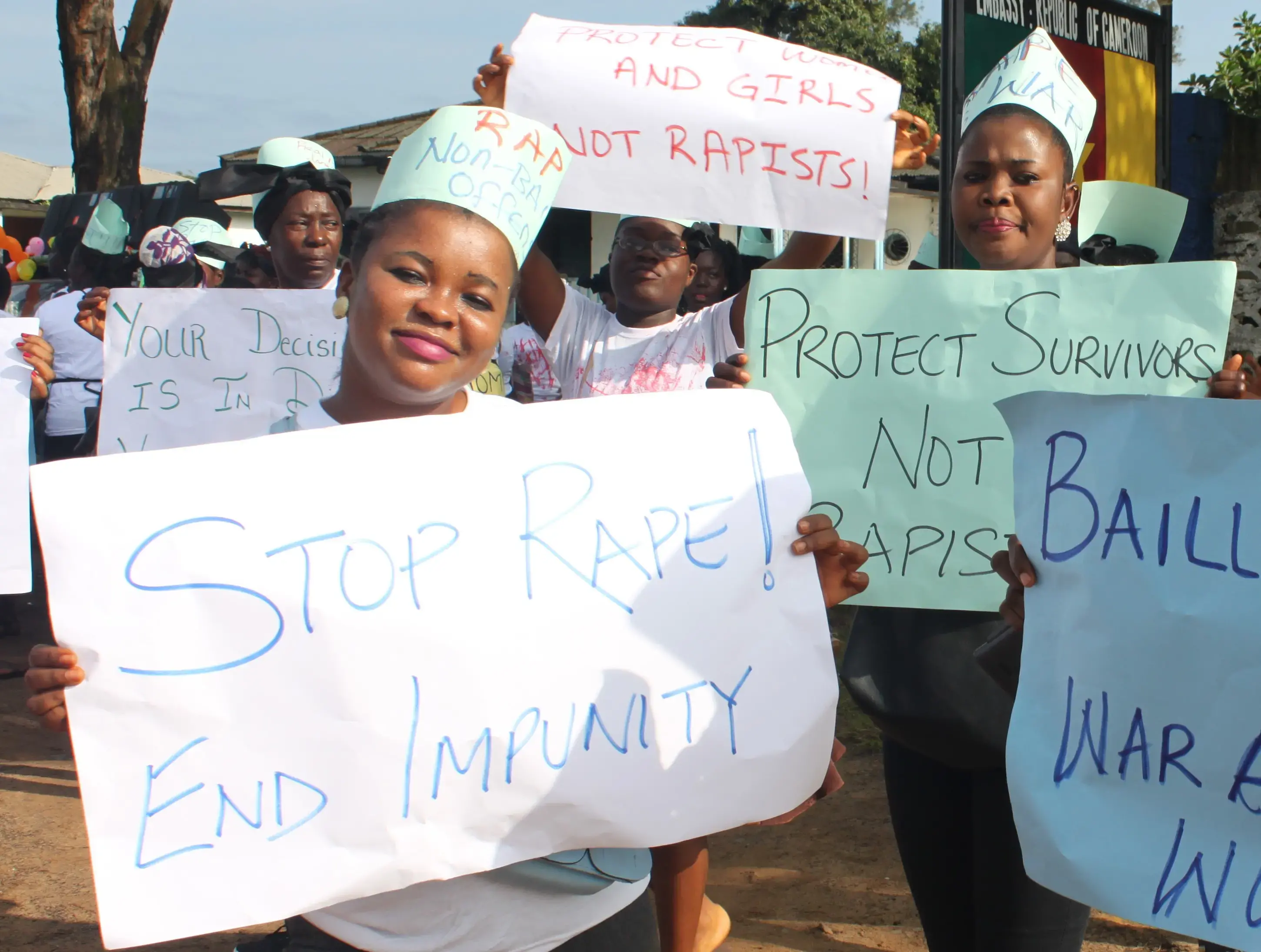Sexual and Gender Based Violence continues to be a major challenge for Liberia’s recovery after 14 years of war that ended in 2003. For many Liberians women and girls, the appalling violence they experienced during wartime still occurs. Early marriage, rape, offensive touching (sexual assault), forced prostitution, wife inheritance and forced servitude are the main types of sexual and gender-based violence perpetrated in the communities.
Overall, teenage pregnancy stands at 31percent and Female Genital Mutilation (FGM); a harmful rite of passage that deters girls from dignified adolescence and increases their complications during birth is widely practiced and acceptable in 10 out of 15 Counties in Liberia.
The continuing violence against women in the aftermath of the conflict demonstrates clearly the need for greater understanding of “masculinity” as it intersects with notions of what it means to be a female as social norms and practices that give rise to some of these abuses are acceptable as normal.
A significant portion of these sexual violence often goes unreported/unpunished; these include violations such as rape, incest and other forms of sexual as well as psychological forms of violence are treated, as private, and mostly handled the “family way”. Meanwhile, the more public forms of violence which are more physical in nature, such as fighting/beating are often dealt with in accordance with traditional customary law, administered and enforced by the town chief in rural areas and town chairman in urban areas. There’s reluctance in addressing the more culturally ingrained issue of Female Genital mutilation (FGM). In rural Liberia, it is estimated that approximately 72 percent of women and girls has been subjected to FGM.
UNFPA provides technical and financial support to the government through the ministries of gender, children and social protection, health, and partners for the enactment of gender-related laws and policies; promote policy dialogue with opinion leaders to formulate policies to combat harmful traditional practices and female genital cutting.
UNFPA also supports the strengthening of national capacity to address gender-based violence through a multisectoral approach and through the provision of high-quality services to survivors, including in humanitarian settings.


